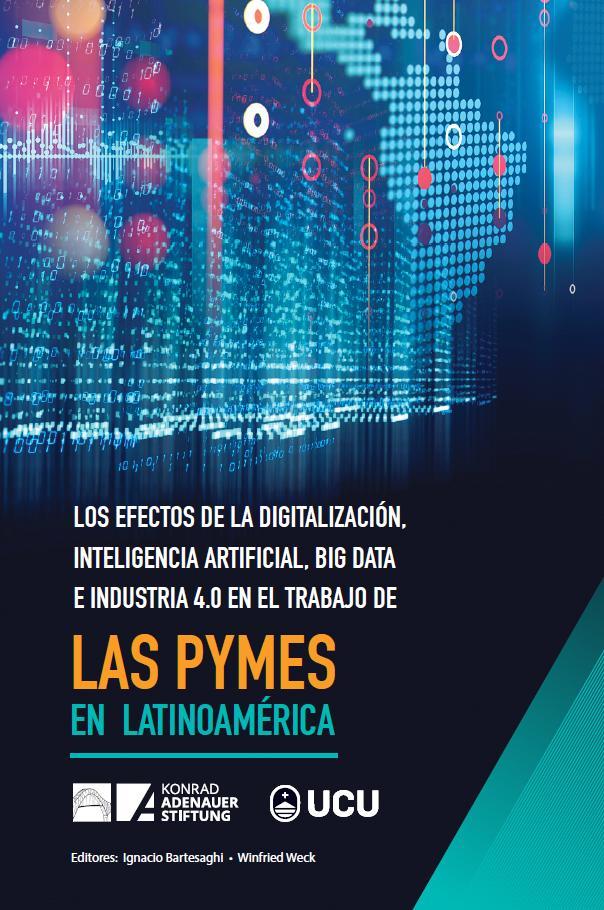El presente documento constituye el reporte consolidado de los cinco países que participaron en el proyecto “Efectos de la digitalización, inteligencia artificial, Big Data e industria 4.0 en el trabajo de las Pymes en Latinoamérica” Argentina, Costa Rica, Ecuador, México y Uruguay.
Se presentan los principales resultados de las encuestas aplicadas a una muestra de 480 Pymes, conformada por 96 de cada país, separadas en dos zonas económicas en los sectores industrial primario (incluido agropecuario), comercial (mayorista y minorista) y de servicios. Se realiza además, un estudio exploratorio realizado a 50 startups (10 por cada país) con el objetivo de plantear un primer acercamiento para este tipo de empresas.
Entre los principales resultados se destaca que es necesario que un mayor número de Pymes incorpore en sus procesos el uso de sistemas informáticos especializados en logística y abastecimiento, recursos humanos, producción, administrativos y financieros, CRM, analítica de datos, workflow o BPM. Para ello se requiere mayor inversión y mejor capacitación del personal, de tal forma que las startups alcancen un grado de madurez digital mayor al observado. Además, los recursos tecnológicos que las Pymes utilizan son muy básicos, normalmente haciendo uso generalizado de la web, pero pocas hacen uso de aplicaciones móviles y tienda online, herramientas muy poderosas para el ámbito empresarial. Por otro lado, la mitad de las Pymes no realiza inversiones en analítica de datos, ni en tecnología o comunicación. Por último, se destaca que el camino hacia la madurez digital de las Pymes en Latinoamérica, incluye cerrar las brechas de conectividad y uso de las TIC, contar con apoyos gubernamentales que les permitan ser usuarios expertos de las mismas, aumentar su desarrollo hacia la digitalización y la adopción de nuevas tecnologías digitales, la creación de nuevos productos y servicios con alto grado de innovación digital, y uso avanzado de técnicas como digitalización, inteligencia artificial, Big Data e industria 4.0.






